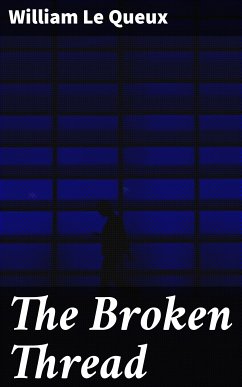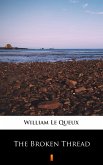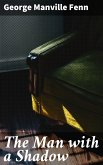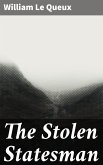In "The Broken Thread," William Le Queux crafts a riveting narrative that intricately weaves elements of suspense and sociopolitical commentary, set against the tumultuous backdrop of early 20th-century Europe. The novel'Äôs literary style reflects a keen attention to detail, with vivid descriptions and a multifaceted plot that captures the reader's imagination. Le Queux deftly navigates themes of betrayal, loyalty, and the human condition, questioning societal norms and the fragility of trust amidst rising tensions. The book emerges as both a thrilling tale and a poignant reflection on the complexities of human relationships in a changing world, characteristic of Le Queux's ability to blend fiction with contemporary issues of his time. William Le Queux, born in 1864, was a prolific British author and journalist whose varied career encompassed espionage and international politics. His extensive travels and experiences with different cultures undoubtedly enriched his narrative, revealing his deep fascination with the intrigue and peril that defined his era. The context of pre-World War I anxieties permeates his work, as he often explored the psychological implications of warfare, espionage, and betrayal, illuminating the darker aspects of human nature. Readers seeking a compelling read filled with tension and morally complex characters will find "The Broken Thread" an engrossing selection. As a work that both entertains and provokes thought, this novel is essential for those interested in historical fiction layered with psychological insights, making it a timeless addition to literary exploration.
Dieser Download kann aus rechtlichen Gründen nur mit Rechnungsadresse in A, B, BG, CY, CZ, D, DK, EW, E, FIN, F, GR, H, IRL, I, LT, L, LR, M, NL, PL, P, R, S, SLO, SK ausgeliefert werden.









